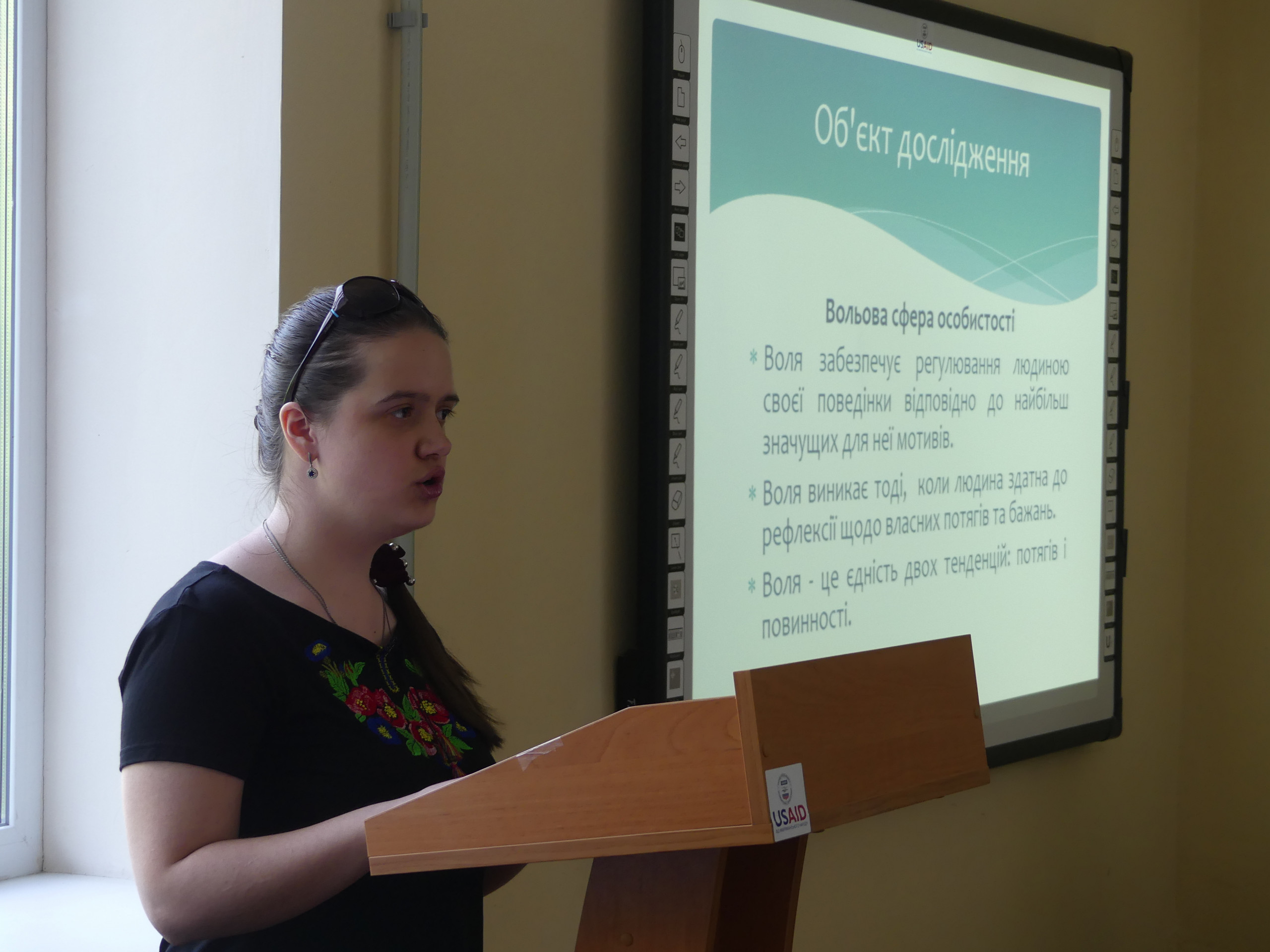Every year on the third Saturday of May, the Ukrainian scientific community celebrates Science Day.
In previous years, the traditional Interregional Scientific and Practical Conference of Young Scientists and Postgraduate Students was held at the Institute with the support of the Council of Young Scientists and the Council of the Student Scientific Society. "Research of young scientists in the humanities".The West united young scientists, students of many regions of our country. At the sectional meetings, participants had lively discussions on topical issues of philology, literary studies, history, educational pedagogical sciences, and psychology.
This year is different. Under martial law, our students make every effort to help their country. They volunteer, fight in Territorial Defense battalions, do charity performances, and participate in international programs to help those in need today.
There are also students who, despite the difficult conditions of distance learning, still test their knowledge at scientific and practical conferences. Thus, members of the Student Scientific Society Sofia Bambula and Alyona Kryvenchuk under the leadership of Associate Professor TV Borozentseva took part in the III International scientific-practical conference "Aviation. Industry. Society ", which took place on the basis of Kharkiv National University of Internal Affairs. As part of the section "Philological and socio-historical problems of society" Alona spoke about methods of maintaining the mental health of modern youth. Sofia's topic is "Verification of methods of self-regulation during hostilities."
The staff of scientific and pedagogical staff of the institute includes 9 doctors and 41 candidates of sciences. All of them carry out work within the framework of 5 collective research topics. The Department of Domestic and Foreign History is researching a very relevant topic in today's conditions - "Civilizational challenges in the prism of totalitarian relations: historical discourse. The first stage of its implementation ended recently, as reported in UkrINTEI. In their work, scientists study the processes of creation and existence of the totalitarian system in general, its main components, features of each stage in historical retrospect against the background of general civilizational development of mankind.
One of the main research approaches in the study are historical-anthropological and socio-cultural approaches. Finding the right person from the template official picture is an important task of this work. Socio-cultural approach allows us to look at a new perspective on society, its structure, institutions, culture, way of life of different social groups, to analyze their transformation in certain historical conditions.
The materials of the Erasmus + project "Academic Counteraction to Hybrid Threats", the participants of which are scientists of the department, were used in the work. They analyze new civilizational hybrid threats to humanity, in particular, the events in eastern Ukraine in 2014, the coronavirus pandemic and more.
Another very timely topic of research of the Department of Psychology and the Department of Pedagogy and Teaching Methods - «Psychological and pedagogical factors of human viability development in conditions of unpredictable socio-economic changes ". Within its implementation, Candidate of Pedagogical Sciences, Associate Professor of Psychology NG Kosheleva, as part of a team of co-authors, published the results of her work "Empirical study of the content parameters of student leadership" in the scientific journal "Amasonia Investiga", indexed in the international scientometric database Web of Science. The article contains a retrospective analysis and generalization of the content parameters of student leadership. The sociometric status of student leaders is determined and their values are clarified. The team of authors built and substantiated the model of formation of leadership qualities of the student, which is recommended to be implemented in the educational process.
Topic "Slavic languages in the modern communicative space: cognitive-discursive and linguodidactic aspects" studies the team of scientists of the Department of Ukrainian Philology and the Department of General Linguistics and Russian Language. Associate professors of the Department of Ukrainian Philology TM Radionova and OV Muratova together with colleagues from other universities of Ukraine in their work "Gender stereotypes in the Ukrainian media and media-educational tools for their content" provided theoretical justifications and practical recommendations for media educational content against gender stereotypes in the Ukrainian media. It is proved that despite the weakening of gender differences in the socio-cultural sphere in the world, in developing countries (for example, Ukraine), gender stereotypes remain a powerful tool for an affective approach to the media and advertising to consumers. The work, which is published in a peer-reviewed scientific publication, offers author's ways to increase the level of media literacy and critical thinking, creating a personal media field, which seems very important in today's information threats.
A wise saying teaches: “First do what is necessary. Then - what is possible. Only then will you see that you are doing the impossible. "
These words can be fully attributed to the work of our teachers, scientists, who despite all the difficulties and problems of today continue to work for the benefit of their country, to train highly qualified personnel for their native Ukraine.
So, congratulations to the great friendly staff of the institute on the Day of Science in Ukraine! We wish you, dear colleagues, a peaceful sky above your head, an inexhaustible source of faith, hope, love, creative achievements in the work and education of more than one generation of high-level specialists for the glory and prosperity of Ukraine!

